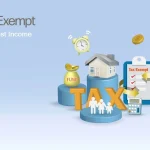Most Massachusetts drivers are familiar with the mass excise tax as a line item on their vehicle registration bill. But where does the money go? Who sets the rates? And can you lower or avoid the tax legally?
This comprehensive guide breaks down the mass excise tax in clear terms, so you can understand how it works, why it exists, and how it impacts your budget—and your community.

Content
What Is the Mass Excise Tax?
The mass excise tax, short for “Massachusetts motor vehicle excise tax,” is a local tax levied annually on the ownership of registered vehicles. It is not based on mileage or fuel usage, but on the original value of your car when it was new, regardless of how much you actually paid.
In essence, this tax is a form of property tax—just like what you pay on your home, but specifically for your vehicle.
Why Do We Pay the Mass Excise Tax?
Revenue for Local Services
Unlike the state sales or income tax, excise tax revenue stays within your municipality. It helps fund:
- Public schools
- Police and fire departments
- Local road repairs
- Snow removal
- Trash collection and recycling programs
This tax is a crucial component of how cities and towns maintain their infrastructure without needing to raise broader property taxes.
A “Benefit-Based” Tax
The mass excise tax operates on a principle of tax fairness—those who own and operate more valuable vehicles are presumed to have a greater ability to pay and derive more benefit from public infrastructure.
How Is the Mass Excise Tax Calculated?
The tax rate across Massachusetts is set at $25 per $1,000 of your vehicle’s original MSRP, based on a state-mandated depreciation schedule. Here’s how the tax decreases as the vehicle ages:
| Vehicle Year | Tax Rate Applied | Depreciation Value |
| 1st Year | $25 per $1,000 | 90% of MSRP |
| 2nd Year | $25 per $1,000 | 60% of MSRP |
| 3rd Year | $25 per $1,000 | 40% of MSRP |
| 4th Year | $25 per $1,000 | 25% of MSRP |
| 5th Year+ | $25 per $1,000 | 10% of MSRP |
Example:
If your car had an MSRP of $30,000:
- Year 1: Tax is based on 90% of $30,000 = $675
- Year 5+: Tax is based on 10% of $30,000 = $75
Even if you bought the car used for $15,000, the tax still reflects the MSRP as new.
Mass Excise Tax vs. Other Taxes in Massachusetts
While the mass excise tax targets motor vehicle owners, it fits into a broader framework of Massachusetts taxes that also include:
| Tax Type | Applies To | Administered By |
| Sales Tax | Retail purchases | Massachusetts DOR |
| Income Tax | Personal earnings | Massachusetts DOR |
| Alcohol Excise Tax | Alcohol sales | DOR & ABCC |
| Fuel Excise Tax | Gasoline purchases | State Highway Fund |
| Cannabis Excise Tax | Legal cannabis sales | CCC and local governments |
| Property Tax | Real estate ownership | Local municipalities |
| Vehicle Excise Tax | Car ownership | Local municipalities |
This targeted excise tax model allows the state and local governments to apply fair, purpose-driven taxes to specific goods or services—reducing reliance on blanket taxation.
Who Has to Pay the Mass Excise Tax?
All Massachusetts residents who:
- Own a car, motorcycle, or commercial vehicle
- Have it registered with the RMV
- Reside in the state during the billing period
The tax is prorated based on how long your vehicle was registered in a given year. If you sell or move the car mid-year, you may be eligible for a partial abatement.
Mass Excise Tax Exemptions and Reductions
You may be eligible for a reduced excise bill or full exemption if:
- You’re active-duty military and your legal residence is outside Massachusetts
- You’re a disabled veteran or receive specific VA benefits
- The vehicle is sold, stolen, totaled, or moved out of state before the full year ends
Apply for an abatement within 3 years from the date the tax was due OR 1 year from the date of payment—whichever is later.
Final Thoughts
Understanding how the mass excise tax works puts you in a stronger position to:
- Budget accurately for your vehicle ownership
- Know your rights as a taxpayer
- Advocate for fairness and efficiency in local government
Rather than being just another bill, this tax is a vital thread in the fabric of local governance—funding the services we all rely on.
FAQs
Can I deduct the mass excise tax on my federal taxes?
Yes, but only if you itemize deductions and the tax is based on the vehicle’s value, which it is in Massachusetts.
Can the excise tax increase?
The base rate of $25 per $1,000 hasn’t changed in years, but some local governments may advocate for reforms. Always check current policies.

Bill Foulkes is a business blogger who specializes in writing blog posts for small businesses. He has been blogging for over one year and does not use any ghost writers to help him with his work. Bill enjoys reading books on self-development and entrepreneurship, as well as watching YouTube videos on how to improve your life. When he’s not working, he likes playing video games and hanging out at the movies with friends.


